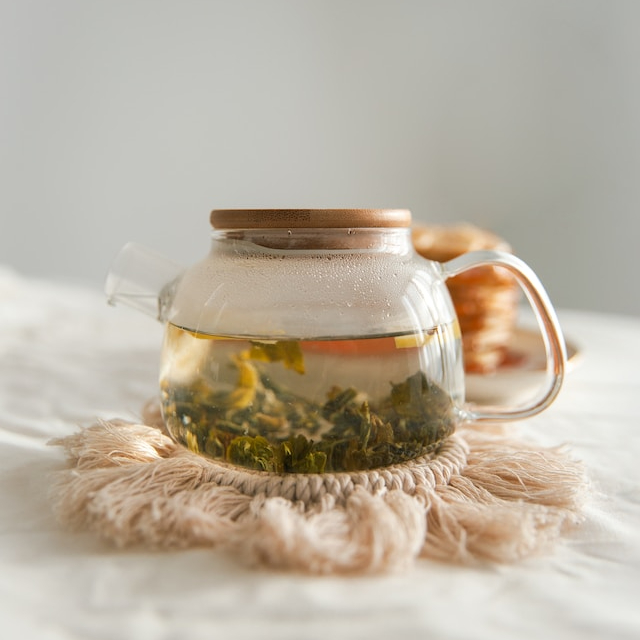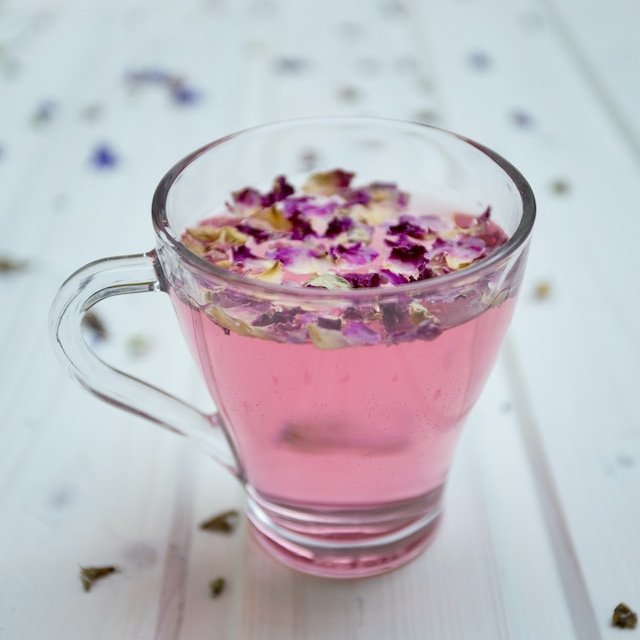Taking a natural and holistic approach to supporting kidney health can be an intriguing option for those seeking alternative remedies. Herbs have long been used in traditional medicine to promote wellness and address various health concerns.
In this article, we will delve into the potential benefits and considerations of incorporating herbs into your kidney health regimen. While it’s important to note that herbs are not a substitute for professional medical advice, they can serve as a complementary approach when used responsibly.
So, if you’re curious about how herbs can contribute to kidney health, read on to discover more about the potential advantages and important factors to keep in mind.
Brief History of Herb Usage for Kidney Health

The use of herbs for kidney health has a long history and can be traced back to various traditional healing systems and cultures around the world. Herbal remedies have been used for centuries as a natural approach to promoting kidney health and treating kidney-related conditions.
In ancient civilizations such as those of China, India, Egypt, and Greece, herbal medicine played a significant role in healthcare practices. These ancient cultures recognized the importance of kidney health and utilized various herbs for their diuretic, anti-inflammatory, and detoxifying properties, among others.
For example, Traditional Chinese Medicine (TCM) has a comprehensive system of herbal medicine that includes numerous herbs known for their beneficial effects on kidney health. In TCM, the kidneys are considered vital organs responsible for maintaining overall health and well-being. Herbs like Rehmannia, Cornus, and Astragalus are commonly used in TCM formulas to tonic the kidneys and support their function.
Similarly, Ayurveda, the traditional healing system of India, places great importance on kidney health. Ayurvedic practitioners use herbs such as Punarnava, Gokshura, and Varuna to promote kidney function and balance the body’s doshas (energetic forces).
Major Properties of Various Herbs for Kidney Health
🟩 Diuretic Properties
Many herbs, such as dandelion root, nettle leaf, corn silk, and parsley, have diuretic properties. These herbs may increase urine production, helping to flush out toxins, waste products, and excess fluids from the kidneys. This can potentially promote kidney health and prevent conditions like edema (fluid retention).
🟩 Anti-inflammatory Effects
Inflammation can contribute to kidney damage and impair kidney function. Certain herbs, including ginger, turmeric, and garlic, possess anti-inflammatory properties. By reducing inflammation in the kidneys, these herbs may help protect against kidney damage and support overall kidney health.
🟩 Antioxidant Activity
Oxidative stress and the accumulation of free radicals can damage the kidneys. Some herbs, like turmeric and garlic, contain antioxidants that can neutralize free radicals and protect the kidneys from oxidative damage.
🟩 Kidney Stone Prevention
Certain herbs, such as chanca piedra, are believed to have properties that help prevent the formation of kidney stones. They may promote the breakdown of stones or inhibit their formation, reducing the risk of kidney stone-related complications.
🟩 Urinary Tract Health
Herbs like cranberry are known to support urinary tract health. Cranberry contains compounds that prevent bacteria from adhering to the urinary tract walls, reducing the risk of urinary tract infections (UTIs). UTIs can potentially lead to kidney infections and damage if left untreated.
🟩 Immune Support
Some herbs, such as astragalus, are believed to have immune-boosting properties. By supporting immune function, these herbs may help the body fight off infections and maintain overall kidney health.
It’s important to note that while herbs may offer potential benefits for kidney health, scientific research on their effectiveness and safety is limited. It’s always recommended to consult with a healthcare professional or a qualified herbalist before using herbs for kidney health, especially if you have an existing kidney condition or are taking medications. They can provide personalized guidance and help ensure that the herbs you choose are appropriate for your specific situation.
Top 15 Herbs for Kidney Health
|
Herb |
Description |
| 1. Dandelion | Supports kidney health and acts as a diuretic. |
| 2. Nettle | Helps in detoxification and promotes kidney function. |
| 3. Parsley | Has diuretic properties and aids in kidney detoxification. |
| 4. Marshmallow | Soothes and protects the kidneys from inflammation. |
| 5. Ginger | Assists in kidney detoxification and reduces inflammation. |
| 6. Turmeric | Has anti-inflammatory properties and promotes kidney health. |
| 7. Corn silk | Acts as a diuretic and supports kidney function. |
| 8. Buchu | Traditionally used to improve kidney and urinary health. |
| 9. Horsetail | Promotes diuresis and helps maintain kidney function. |
| 10. Juniper | Acts as a natural diuretic and supports kidney health. |
| 11. Gravel root | Traditionally used to support urinary and kidney health. |
| 12. Cornelian cherry | Supports kidney function and helps in detoxification. |
| 13. Hydrangea | Assists in maintaining kidney health and preventing stone formation. |
| 14. Goldenrod | Promotes kidney detoxification and urinary tract health. |
| 15. Chanca piedra | Traditionally used to support kidney health and stone prevention. |
Dos and Don’ts When Taking Herbs for Kidney Health

While herbs can offer potential benefits, they can also have side effects and interact with medications. Here are some dos and don’ts to keep in mind:
🟩 What to do
- Consult a healthcare professional: Seek guidance from a healthcare professional, such as a doctor or licensed naturopathic physician, before incorporating any herbs into your routine.
- Research reputable sources: Choose herbs from trustworthy and reputable sources that have been tested for quality, purity, and safety.
- Start with small doses: Begin with a low dose of herbs and gradually increase if well-tolerated, while monitoring for any adverse reactions.
- Observe your body’s response: Pay attention to how your body responds to the herbs and discontinue use if unexpected symptoms or side effects occur.
- Complement with a healthy lifestyle: Use herbs as a complementary approach alongside a balanced diet, hydration, regular exercise, stress management, and sufficient sleep.
🟩 What not to do
- Avoid self-diagnosis and self-prescription: Refrain from diagnosing or prescribing herbs for kidney health without professional guidance.
- Do not rely solely on herbs: Herbs should not replace conventional medical treatments or prescribed medications for kidney conditions. They should be used as a supportive measure with healthcare provider consultation.
- Assume all herbs are safe: Recognize that not all herbs are safe for everyone, especially individuals with specific health conditions or those taking certain medications.
- Avoid excessive herb consumption: Follow the recommended dosage and do not exceed it, as taking excessive amounts of herbs can be harmful.
- Do not discontinue prescribed medications: If you are taking prescribed medications for kidney health, do not stop or replace them with herbs without consulting your healthcare professional. Herbs should be used alongside prescribed treatments, not as replacements.
Remember to always prioritize your safety and consult with a healthcare professional to ensure the appropriate and safe use of herbs for kidney health.
Proper Ways of Taking Herbs for Kidney Health
When it comes to taking herbs for kidney health, it’s important to remember that herbal remedies should be used as complementary approaches and not as a substitute for medical advice or treatment.
Here are some general guidelines for taking herbs for kidney health:
🟩 Consult a healthcare professional
As mentioned, it’s crucial to seek professional advice before starting any herbal regimen, especially if you have kidney issues or are on medications. They can help determine the suitability of herbs for your specific situation and provide appropriate dosing instructions.
🟩 Choose reputable sources
When purchasing herbs, select reliable sources that prioritize quality and safety. Look for reputable brands, organic certification, and proper labeling.
🟩 Follow recommended dosage
Always adhere to the recommended dosage provided by the healthcare professional or as stated on the product label. Dosage can vary depending on the herb and its form (dried, capsules, tinctures).
🟩 Start slowly
It’s generally advisable to begin with a low dosage to assess how your body responds to the herb. Gradually increase the dosage if needed and as recommended.
🟩 Herbal tea infusions
Herbal teas can be a gentle way to incorporate kidney-supportive herbs into your routine. Steep the herbs in hot water for the recommended duration, strain, and drink. Common herbs used for kidney health include dandelion root, nettle leaf, parsley leaf, and corn silk.
🟩 Tinctures and extracts
Tinctures are concentrated liquid extracts of herbs. Follow the recommended dosage provided by a healthcare professional or the product instructions. Tinctures can be mixed with water or taken directly.
🟩 Herbal capsules or tablets
Some herbs for kidney health are available in capsule or tablet form. Follow the recommended dosage provided by a healthcare professional or the product instructions. Take them with water or as directed.
🟩 Herbal preparations and formulations
Certain herbal preparations or formulations specifically designed for kidney health may be available. These might include combinations of different herbs known for their beneficial effects on the kidneys. Follow the recommended dosage and instructions provided by a healthcare professional or on the product packaging.
🟩 Monitor for adverse effects
Pay attention to any changes in your body, including possible side effects or allergic reactions. If you experience any adverse effects, discontinue use and consult a healthcare professional.
🟩 Maintain a healthy lifestyle
While herbs can support kidney health, it’s important to adopt an overall healthy lifestyle. This includes staying hydrated, following a balanced diet, exercising regularly, managing stress levels, and avoiding excessive alcohol consumption and smoking.
What to Expect When Taking Herbs for Kidney Health
When taking herbs for kidney health, it is possible to experience some side effects, although they may vary depending on the specific herb and individual reactions. Common side effects may include gastrointestinal issues such as stomach upset, diarrhea, or nausea. Some herbs may also have diuretic properties, which can increase urine production and lead to more frequent urination.
It is important to note that these side effects are not experienced by everyone, and the severity can vary. It is crucial to start with a low dosage and gradually increase it while closely monitoring your body’s response. If you experience any severe or persistent side effects, it is recommended to discontinue use and consult with a healthcare professional.
Final Words
In conclusion, incorporating herbs into your routine for kidney health can be a natural and complementary approach. However, it’s crucial to remember that herbs may affect individuals differently, and consulting with a healthcare professional or herbalist is essential to ensure safety and effectiveness.
Remember, maintaining kidney function is a holistic journey that involves a balanced diet, regular exercise, and appropriate medical care. Always prioritize your health and well-being, and make informed decisions in collaboration with your healthcare provider. Here’s to nurturing your kidneys and embracing a healthier lifestyle.
